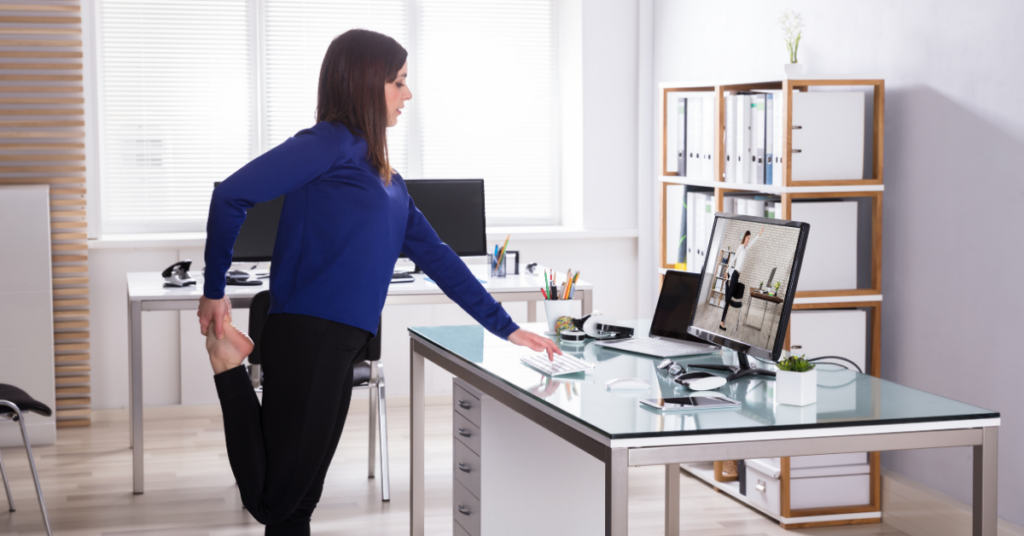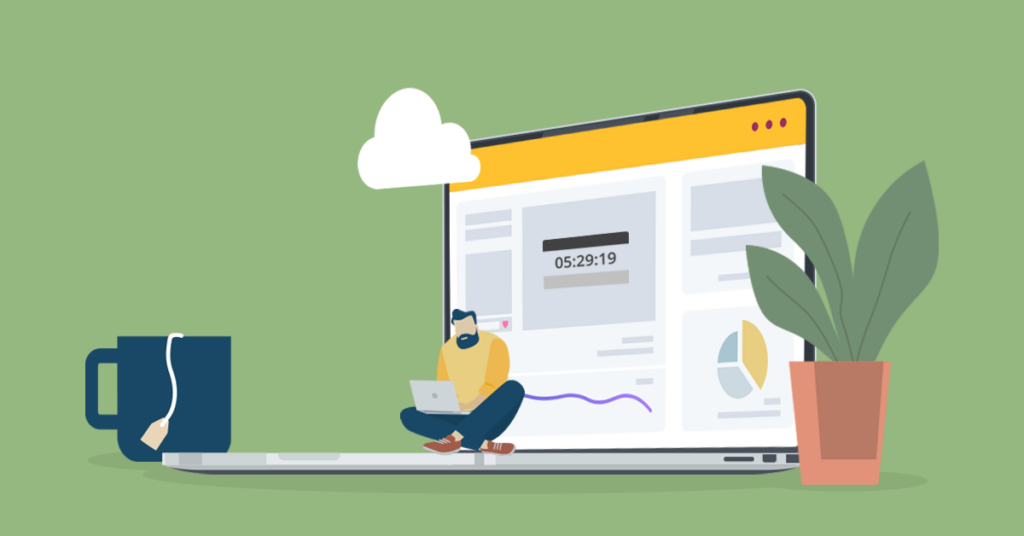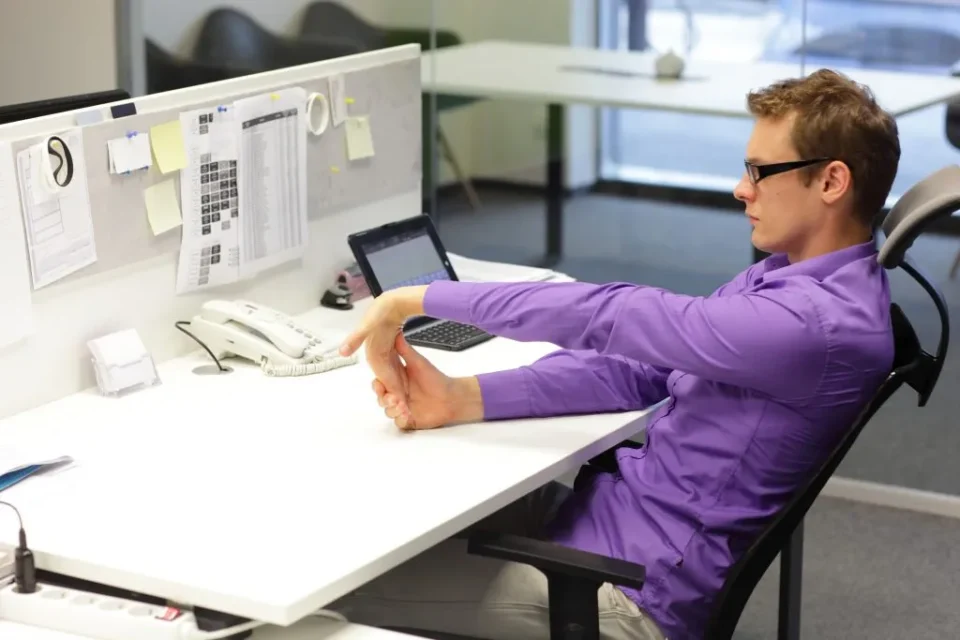The pandemic caused a massive shift towards work-from-home. It’s gone now, but the trend isn’t going anywhere. Most professionals now prefer handling tasks from their comfort rather than in corporate offices.
Working from home has its benefits. If you’re taking the route, however, you must ensure you stay healthy. Here are seven expert tips you can follow.
Set Up an Ergonomic Home Office
With an ergonomic home office, you get comfort and better productivity. You can start by selecting a designated workspace. It’s best if in a quiet spot with natural light. Then, invest in ergonomic furniture like an adjustable chair and a desk.
You can also implement the adjustable desk yourself using a linear actuator. The project can be simple if you take the time to learn the setup. Simply knowing how to replace an actuator can go a long way.
Besides furniture, you should select equipment that ensures good posture. For instance, your computer screen should be at eye level to avoid neck strain. Also, consider a comfortable chair with lumbar support. That’ll allow for proper spinal alignment during long work hours. Ultimately, the key is to create a setup that reduces physical discomfort.
Stick to Healthy Work Habits

Even if you’re at home, it’s essential to maintain healthy work habits. An important approach here is to add breaks to your schedule. It’s important to avoid prolonged sitting periods. From time to time, stand up, stretch, and take short walks. Doing so will refresh your mind and reduce sedentary behavior.
Hydration is an essential factor to focus on. So, keep water nearby to stay adequately hydrated throughout the day. Furthermore, make sure you follow a consistent sleep routine. You should have your workspace separate from your bedroom so you don’t mix things up.
If you prioritize the above habits, it’s easy to achieve a healthier work-from-home experience. In the long run, it enhances both your physical and mental well-being.
Eat Well
It sounds simple, but many people skip eating healthily because they work from home. Hydration discussed in the previous also comes in here. Both are vital and should be taken seriously.
Each day, start with a nutritious breakfast. Ideally, it should include a balance of proteins, whole grains, and fruits. Also, plan your meals to feature vegetables, lean proteins, and healthy fats.
Most people get it wrong by simply eating snacks all day long. However, you should stay mindful of snacking habits. If you must take them, go for nutritious options like fruits, nuts, and yogurt. Skip processed, sugary snacks.
You should have short breaks to prepare and enjoy your meals without disturbance. Doing so will support your nutritional goals and provide a mental break. Overall, your well-being improves as you work from home.
Engage in Physical Activity

Adding physical activity into your work-from-home routine is another crucial aspect of overall well-being. The best part is that it’s simple to implement. You don’t need to do too much.
For instance, you can schedule short breaks for stretching and quick exercises. That’ll help avoid sedentary habits. Also, a simple activity like walking around your home can make a significant impact.
If you can, consider having a dedicated workout routine in your schedule. Again, it doesn’t have to be complex. It could be a simple morning jog, workout, or yoga break. For the best results, aim for at least 30 minutes of exercise on most days. As a takeaway, you can experiment with different activities to find what best suits your schedule.
Pay Attention to your Mental Health and Well-being
When you work from home, there’s the tendency to stay active for prolonged hours. In such situations, the brain suffers the most. That’s why you must pay attention to your mental health and well-being.
What should you do? Well, here are some tips:
- Have a routine that includes regular breaks to refresh your mind.
- Use short moments for deep breathing exercises and mindfulness to reduce stress.
- Maintain contact with your colleagues, friends, and family. You can do this via virtual meetings or calls. It’s important because social interaction, even though digital, offers valuable support and helps avoid isolation.
- Set boundaries between work and personal spaces.
- Try engaging in activities you enjoy during breaks — like reading, listening to music, or hobbies.
Note that sometimes, you may be overwhelmed. When such happens, don’t hesitate to seek support from friends and family. You can also contact professionals.
Set Boundaries
What to do here to stay healthy is straightforward. You should communicate your working hours to family members around. They should know when you’re busy and avoid disturbing you. That’ll allow you to focus and finish tasks on time.
We’ve already mentioned that you should have a specific workspace within your home. There should be a clear boundary between your professional and personal life. Again, this signals to others that you are in work mode, and they shouldn’t interrupt.
It’s ideal to set realistic expectations for your workload and deadlines. Inform your clients or employers about your availability. That’ll make it easier to manage work responsibilities without getting engrossed. You should also know when to say no. Try to avoid over-commitment by recognizing your limits and not exceeding them.
Track Screen Time

You’ll likely work from home with a PC. Besides, you have your smartphone. As a result, you should protect your eyes.
Here’s what you can do:
- Aim for a balance by having regular breaks. That’ll reduce prolonged screen exposure.
- Consider the 20-20-20 rule. Here’s how it works: for every 20 minutes, look at something 20 feet away for at least 20 seconds. It’s simple but can help eliminate eye strain caused by prolonged screen use.
- Adjust screen brightness and contrast to comfortable levels.
- Set your monitor at eye level to reduce strain on your neck and back.
Besides the above, you should also have tech-free zones during non-working hours. That way, you can disconnect and relax.
Conclusion
You can protect yourself while working from home by following the above tips. They’re simple, but implementing them will go a long way in improving your health.

